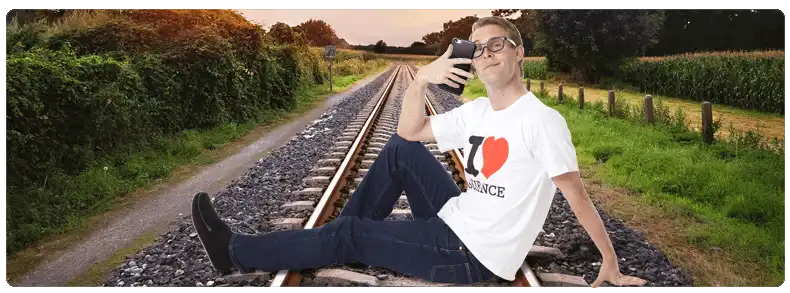
A new survey by insurance website Compare travel Insurance reveals that nearly 1 in 2 Aussies consider a destination’s “instagrammability’’ when booking a holiday.
According to the survey 43% of Australians would opt for a location based on how it would appear on their social feeds. A further 35% admitted their travels were inspired by travel bloggers and influencers. Social media factored in highest for those aged 25-34 with 50% choosing their destination based on the medium.
Natalie Ball, Director, says the trend points to the powerful allure of social media.
“Social media has had a profound impact on the way many of us choose to travel. For instance, Millennials are not just picking their next holiday based on Instagram, some are travelling solely to advertise and monetize their adventures. Whether we’re being influenced to book our next trip or are busily influencing our audiences to do so, it seems social media has become the new travel agent of sorts.”
Bragging Bytes
While posting enviable photos may be a major coup for digital natives, some say that ‘insta-bragging’ is ruining travel. As tourists vie for elusive shots in remote locations, destinations unprepared for a sudden influx of visitors have experienced detrimental effects. Hyams Beach, in New South Wales has been inundated with rubbish as thousands attempt to record the world’s ‘whitest sand’. Previously unexplored destinations such as Iceland, ‘Trolltunga’ in Norway and New Zealand’s coastal lookouts have blamed over-tourism for damaged infrastructure and trampled ecosystems.
Photo Fatalities
‘Over-posting’ on social media has also been credited with a rise in unfortunate accidents and even fatalities. In an attempt to get the perfect shot social media users will go out on a limb, taking thrilling shots off high cliff faces, in front of trains, volcanoes and beside wild animals. A study by All India Institute of Medical Sciences* reported that 259 people have died seeking the perfect picture over a six-year period and fatalities are predicted to rise.
It’s an issue highlighted by tragedies such as the death of an Australian couple in Portugal last June. The pair had attended a wedding and were found days later at the foot of a cliff, having sustained life-threatening injuries. It’s believed the couple had been taking selfies and had fallen trying to retrieve a dropped mobile phone.
Kate Smith, a spokesperson from the couple’s travel insurance company, Zoom Travel Insurance, says that the couple’s death was both tragic and avoidable.
“This very sad story is a reminder for travellers to always prioritise their health and safety. Avoid potentially hazardous lookout points, particularly when unfenced. No view is worth putting your life on the line.”
Ball adds,
“It’s frightening that travellers are literally dying for the perfect shot. Tourists have also been blamed for offending locals, disturbing natural scenery and damaging historical artefacts in the process of getting an instagram worthy picture. Travellers should consider the cost before they snap away.”
Ball notes that injuries or deaths sustained while indulging in risky behaviour were not coverable by travel insurance.
“Dangerous behaviour of any type is unsurprisingly, not covered by travel insurance. When you knowingly put yourself in harm’s way any liability immediately becomes your responsibility.”
Social Exposure
As the impact of travel inspo continues to soar, experts say that users may be at risk of exposing themselves to home robberies.
Ball notes,
“Posting your whereabouts when travelling or ‘checking in’ at the airport is a public announcement that your home is now vacant. Use your better judgement when announcing your location and make sure your privacy settings are secure. Burglars are increasingly turning to social media to target their victims. You may unwittingly inviting your house to be their next target.”
Ball concludes,
From limiting risky snaps to using discretion when location sharing, Ball says that the desire to document our adventures should be coupled with common-sense and self-awareness.
“It’s risky behaviour that tends to skew towards younger travellers, but really it can target any of us who wish to capture the moment. Social media can consume travellers stuck in an endless reel of photo-taking and sharing. Consider capturing more memories and less selfies.”

Eugene Wylde
Eugene is the king of insurance! Having spent more than ten years raising awareness on the importance of holiday protection, he is a self-confessed insurance geek extraordinaire when it comes to the world of travel cover. Eugene loves helping people save time, worry and loads of money with the right policy at the right price. His ideal holiday is any one where he has a pina colada in his hand. Salut!








